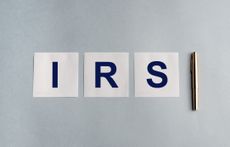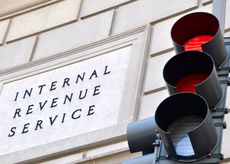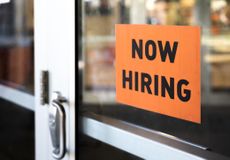Are the Rich Paying Their Fair Share of Taxes? How About You?
How does your tax bill compare to millionaires and billionaires? Our handy tool will tell you where you rank as a taxpayer.

We're hearing a lot lately about creating a more fair and equitable tax system. President Biden and many Congressional Democrats want to tax the rich more heavily and make them pay their "fair share" of taxes. The long list of recent proposals to increase taxes on wealthier Americans include raising the top income tax rate from 37% to 39.6%, eliminating the lower capital gains tax rates for higher-income taxpayers, auditing more rich people, and eliminating various tax breaks for people making at least $400,000 per year. Although none of these changes have been enacted so far, you can be sure that there are a lot of lawmakers in Washington right now who are trying to raise taxes on the rich.
But what about you? Are you paying your "fair share" of the nation's tax burden? Do you even have the faintest idea what portion you pay...beyond a gnawing feeling that it's too darn much? Are you in the top 1%, 5%, 10%, 25% or 50%...or the bottom 50% of income earners?
To help you answer these questions, we created a tool to show how the nation's taxable income and the country's federal income tax bill are distributed among its citizens. Our tool uses the latest IRS data to shine a bright light into what are too often murky shadows.

Sign up for Kiplinger’s Free E-Newsletters
Profit and prosper with the best of expert advice on investing, taxes, retirement, personal finance and more - straight to your e-mail.
Profit and prosper with the best of expert advice - straight to your e-mail.
We also show you how your own income stacks up against that of your fellow Americans. That will make it easier to see if the rich are paying their fair share of taxes.
Are you ready to see where you fit in? With the calculator below, simply enter a single number from your latest tax return, and you'll instantly know the answer. Then have a little fun and see how it compares to what a millionaire might pay. That should help you make up your own mind as to whether the rich are paying their fair share of taxes.
A Look at the Big Picture
The latest numbers from the IRS — based on data from 2019 tax returns — show what it takes to be among the top 1% of income earners: At least $546,434 of adjusted gross income (AGI). That's $6,425 more than it took to buy into this rarified status a year earlier. The 1.4 million or so returns reporting this elite income status accounted for approximately 20% of the total AGI reported on 2019 returns.
That's right. One percent of taxpayers reported about one-fifth of all income. And that same tiny group kicked in roughly 39% of all the federal income taxes paid.
How much do you need to make to be in the top 50% of earners? Just $44,269.
Fall below that level, and you're in the bottom half, along with about 74 million of your fellow taxpayers. All told, that group earned just 11.5% of the AGI reported on 2019 federal returns. And they paid just over 3% of all the income taxes paid.
These income and tax-burden breakdowns come from information reported on 2019 individual income tax returns. Income categories are based on AGI, which is basically income from taxable sources minus certain deductions — including deductible contributions to traditional IRAs and HSAs, alimony paid and student loan interest — but before subtracting either the standard deduction or itemized deductions. Check out the table below to get an overhead view of who pays what when it comes to federal income taxes.
| Income Category | 2019 AGI | Percent of AllIncome | Percent of IncomeTaxes Paid |
| Top 1% | Over $546,434 | 20.14% | 38.77% |
| Top 5% | Over $221,572 | 35.93% | 59.44% |
| Top 10% | Over $154,589 | 47.30% | 70.81% |
| Top 25% | Over $87,917 | 68.82% | 86.65% |
| Top 50% | Over $44,269 | 88.51% | 96.94% |
| Bottom 50% | Below $44,269 | 11.49% | 3.06% |
Source: Internal Revenue Service
(Note that these figures include only federal income taxes. According to Treasury Department estimates, most wage earners will pay more in payroll taxes — Social Security, Medicare, and unemployment taxes — than they do in income taxes.)
Get Kiplinger Today newsletter — free
Profit and prosper with the best of Kiplinger's advice on investing, taxes, retirement, personal finance and much more. Delivered daily. Enter your email in the box and click Sign Me Up.
-
 AI Wants You to Overspend on Gifts This Season: What to Do About It
AI Wants You to Overspend on Gifts This Season: What to Do About ItI urge you to doubt AI advice just as much as you doubt flesh-and-blood advice.
By Howard Dvorkin Published
-
 Investing for Charitable Giving: Discipline Reaps Rewards
Investing for Charitable Giving: Discipline Reaps RewardsConsider doing nothing when markets get volatile, rather than shifting your charitable investing strategy in the moment.
By Mark Froehlich, CPA, MBA Published
-
 New Law Delivers Tax Breaks to Natural Disaster Victims, But Is It Enough?
New Law Delivers Tax Breaks to Natural Disaster Victims, But Is It Enough?Tax Relief The legislation provides critical tax relief to thousands of natural disaster victims across the country.
By Gabriella Cruz-Martínez Published
-
 IRS Shakeup? What Trump's Commissioner Pick Could Mean for Taxes
IRS Shakeup? What Trump's Commissioner Pick Could Mean for TaxesIRS An unconventional nominee comes amid broader efforts to reshape the IRS and tax policy in 2025.
By Kelley R. Taylor Published
-
 IRS Could Lose Another $20 Billion in Funding
IRS Could Lose Another $20 Billion in FundingIRS A mistake in legislative language could soon risk the tax agency's Inflation Reduction Act funding.
By Gabriella Cruz-Martínez Published
-
 Two Consequential Tax Cases You May Not Have Heard About
Two Consequential Tax Cases You May Not Have Heard AboutThe Supreme Court's decisions in these cases create uncertainty about challenging IRS regulations and guidance. Expect more litigation to follow.
By John M. Goralka Published
-
 Sometimes It Pays to 'Blow the Whistle' on IRS Tax Evaders
Sometimes It Pays to 'Blow the Whistle' on IRS Tax EvadersTax Fraud The IRS recently awarded three IRS whistleblowers $74 million. Here's why.
By Kate Schubel Published
-
 The Big CPA Shortage Problem in Accounting
The Big CPA Shortage Problem in AccountingCareer This once resilient accounting industry is cracking, as the labor force seems in dire straits. It’s also affecting the IRS.
By Gabriella Cruz-Martínez Last updated
-
 IRS Skirts TikTok Ban to Sniff Out Tax Scammers
IRS Skirts TikTok Ban to Sniff Out Tax ScammersTax Scams Social media scams caused thousands to file inaccurate returns. What does that have to do with TikTok?
By Kate Schubel Published
-
 Who Does the IRS Audit the Most?
Who Does the IRS Audit the Most?Audits The IRS has a $400K audit directive problem. Here’s what you need to know.
By Kelley R. Taylor Last updated